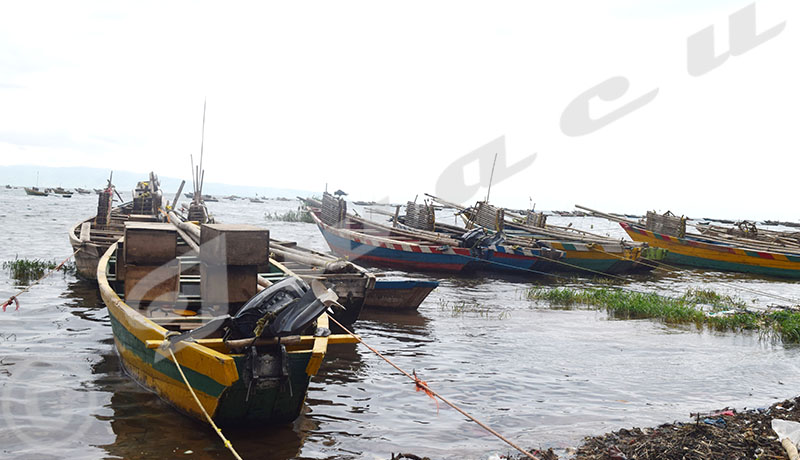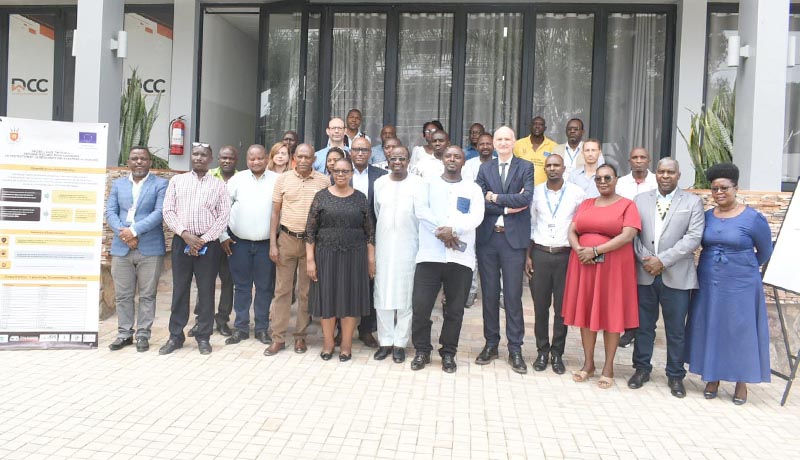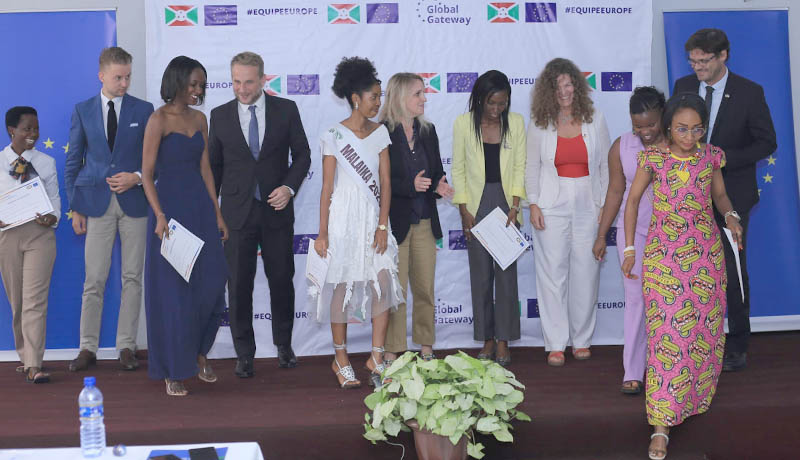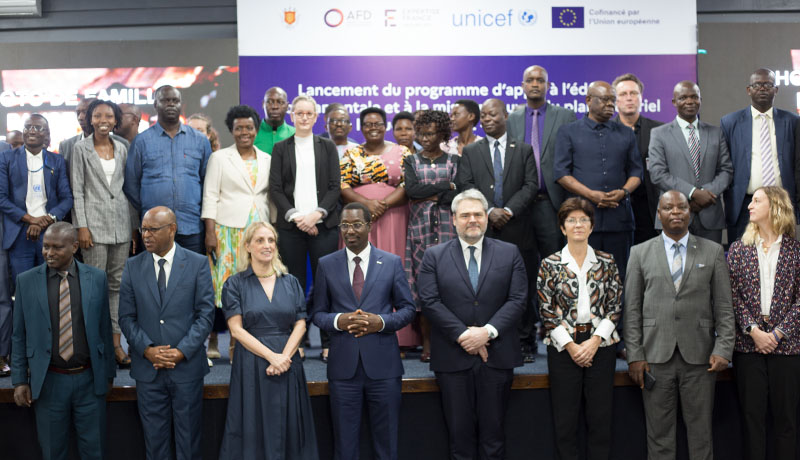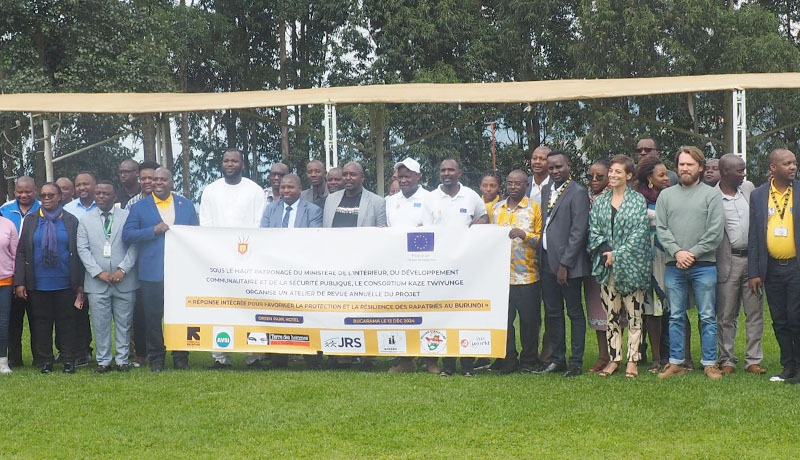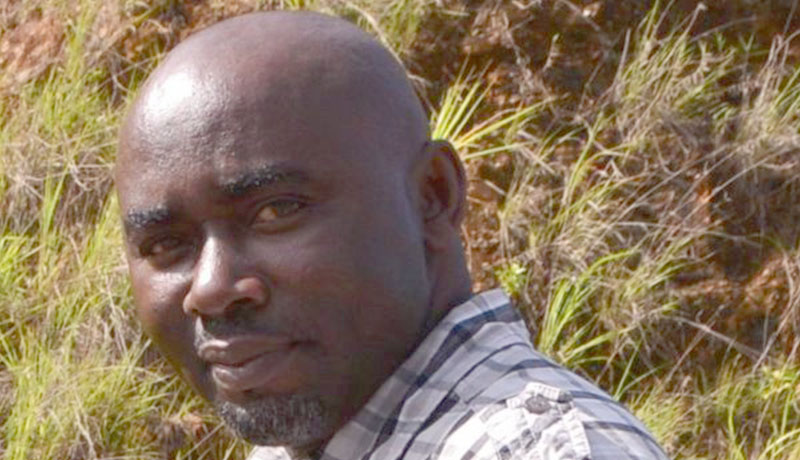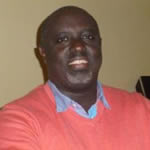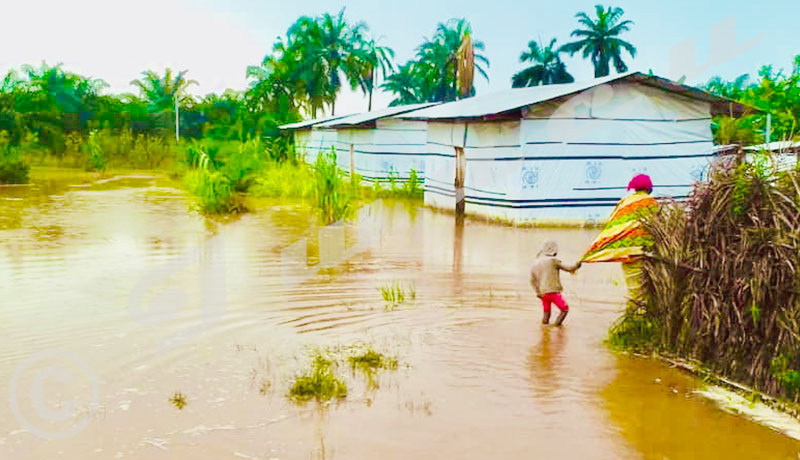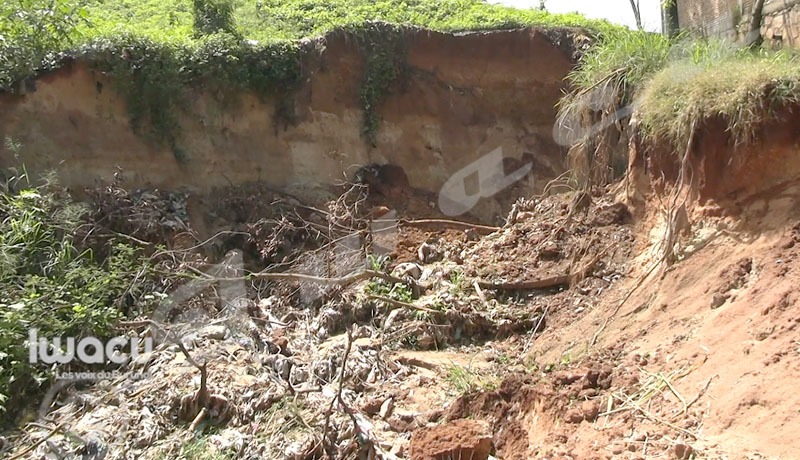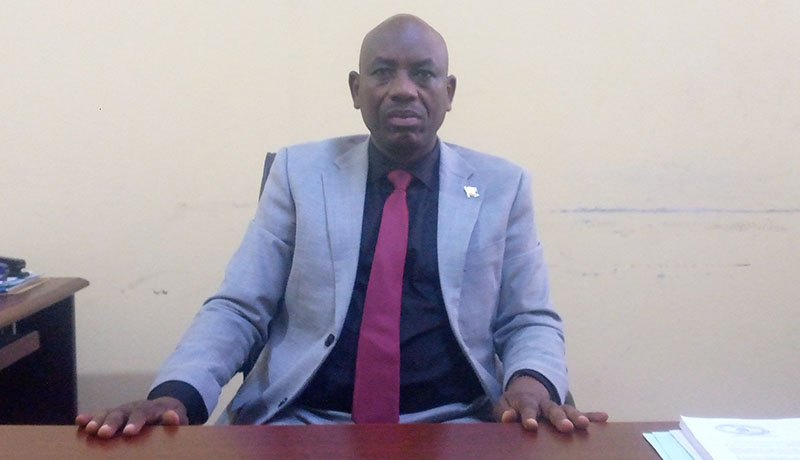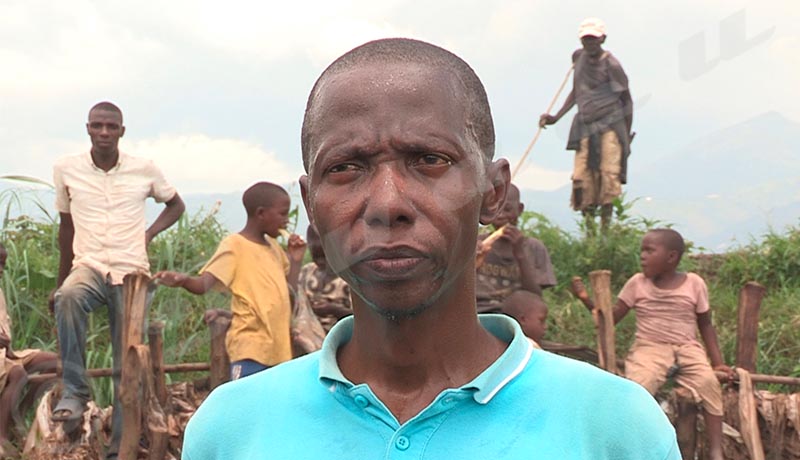Lake Tanganyika Fisheries Management (LATAFIMA) project, funded by the European Union, supported Burundi in developing mechanisms to combat illegal fishing in Lake Tanganyika. Fishermen deplore the continued use of illegal fishing devices. According to the Lake Tanganyika Authority, several activities have already been carried out to protect the lake’s biodiversity.
Officially launched on December 3, 2020, the regional fisheries management project on Lake Tanganyika (LATAFIMA) is funded at 2 million euros by the European Union. It is implemented by Food and Agriculture Organization (FAO) in partnership with Lake Tanganyika Authority and covers four countries namely Burundi, Tanzania, Zambia and DRC. This project is part of the overall framework of ECOFISH program to promote blue growth in East Africa, Southern Africa and the Indian Ocean basin.
LATAFIMA project aims at improving and contributing to equitable economic growth by promoting sustainable fishing in Lake Tanganyika. It aims at strengthening national and regional policies and institutional frameworks as well as the adoption of a series of measures to strengthen the monitoring, control and surveillance system for fishing so as to achieve the reduction, or even the eradication of illegal, unreported and unregulated fishing.
Two years after the launch of this project, various studies and activities have been carried out to fight against illegal fishing in order to protect biodiversity in Lake Tanganyika and increase fish production.
“We conducted a study on the main fish species from Lake Tanganyika that are the most concerned by fishing and the most marketed, such as Sangala, Ndagala and lumpu,” explains Sylvain Tusanga Mukanga, Executive director at Lake Tanganyika Authority.
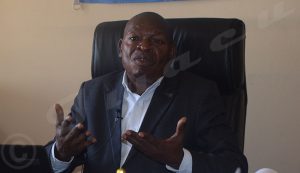
According to him, LATAFIMA project also identified destructive fishing practices and illegal fishing devices to be prohibited while adopting appropriate mechanisms: “We conducted a study to find out the size required to fish each of these three species in order not to capture them as juveniles. It has been noticed that some materials used can even capture larvae.”
He explains that another study was also undertaken to detect socio-economic impact of illegal fishing, especially the loss of earnings following the fishing of juvenile fish.
After these studies, a regional charter on measures for sustainable management of fishing in Lake Tanganyika and its basin was established as part of the LATAFIMA project: “This charter contains all the measures necessary to protect the lake’s biodiversity in order to restore and improve fish stocks in the lake.” After the adoption of this charter, outreach campaigns for fishermen and communities bordering Lake Tanganyika were conducted.
The executive director of Lake Tanganyika Authority explains that other activities are not yet implemented, such as the support to Lake Tanganyika co-management institutions. For him, a permanent system for collecting fishing statistics must be set up.
Fishermen worried about the decrease in fish production
The president of the fishermen’s federation, Gabriel Butoyi, regrets that the production of fish in Lake Tanganyika has constantly decreased. For him, the causes are, among others, the use of illegal fishing devices and the pollution of Lake Tanganyika from neighboring towns and urban centers: “With the recent overflows of Lake Tanganyika, houses, including toilets on Lake Tanganyika coastline were washed away, what also polluted waters of the lake.”
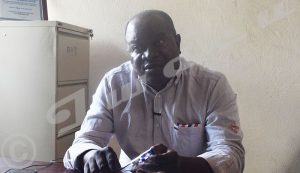
He also deplores fishing techniques that are not modern: “With the soaring prices of petroleum products, we no longer use kerosene lamps. We opted for light bulbs, but they do not produce a strong light to reach the depth where fish are.”
He asks the government to hire experts to identify major causes of the decrease in fish production in Lake Tanganyika: “The Government must take measures against Lake Tanganyika pollution. The buffer zone of this lake must be so respected that no agricultural activities be practiced there.”
Lake Tanganyika Authority says it has also noted a significant decrease in fish production: “In recent years, fishermen could catch a large quantity of fish. For the moment, some spend the night in the lake and come back with a small amount or empty-handed.”
To curb this decrease in fish production, the regional charter on measures for sustainable management of fishing in Lake Tanganyika and its basin proposes a biological rest period of three months each year from May 15 to August 15 for the reconstitution of the fish stock. According to the executive director of Lake Tanganyika Authority, Sylvain Tusanga Mukanga, this measure will be implemented this year.
Regarding Lake Tanganyika pollution, he said that another Lake Tanganyika Water Management (LATAWAMA) project is being implemented to protect waters of the lake against pollution: “The European Union has granted 27 million euros to the second phase of this project to maintain the achievements of the first phase and add other activities for the management of waters of the lake.”
The use of illegal fishing devices, a challenge to be met
According to the regional charter on measures for the sustainable management of fishing in Lake Tanganyika and its basin, the use of certain devices is prohibited in waters of the lake. These include driftnets, monofilament nets, beach seines of all kinds or any device scraping the physical substrate at the bottom of the lake or in estuaries, any net lying flat on the bottom of the lake, any net or braided material whose stretched mesh is less than 6 millimeters as well as encircling gillnets.
The minimum sizes required for the capture of the main fish species of commercial importance are, for example, 260 millimeters (10.2 inches) in total length for large fish (Mukeke/Sangala) and 100 millimeters (0.39 inch) of total length for small fish (Ndagala).
“Since 2012, we have improved the fight against illegal fishing with illegal devices. We have, so far, caught and burned more than 25,000 illegal fishing devices,” says Gabriel Butoyi, president of the fishermen federation in Burundi. He appreciates the collaboration with the administration, security forces and the population to track down those illicit devices and their users.
However, he regrets that there are still fishermen who use these illegal devices: “Despite our efforts, some fishermen continue to use those devices clandestinely.”
He regrets that the laws sanctioning the use of illegal fishing devices are not clear: “When we catch those who use those devices, judges tell us that the penal code does not specify this offense. The government should put in place specific laws to eradicate illegal fishing.”
For him, it is still difficult for fishermen to avoid catching juvenile fish during fishing: “When you plunge the net into the water 200 meters away, you cannot know what type of fish will be caught. For us, any fish caught by a legal net is mature enough.”
According to Lake Tanganyika Authority executive director, the biodiversity of the lake is not yet fully protected. To combat illegal fishing, he says that the order of surveillance boats in Lake Tanganyika has been made, through the LATAFIMA project.
Need to raise awareness on the fight against illegal fishing
According to Gabriel Butoyi, fishermen are not direct beneficiaries of the LATAFIMA project. However, he appreciates workshops and information meetings organized for fishermen to raise their awareness on eradicating illegal fishing.
“A stakeholder training workshop preceded the outreach campaigns of the regional charter on measures for the sustainable management of fishing in Lake Tanganyika. We could not invite all fishermen, but their representatives participated in this workshop,” explains Sylvain Tusanga Mukanga, Lake Tanganyika Authority executive director.
He indicates that a meeting with local authorities, local communities and fishermen for the campaign for the charter was also held in Rumonge province in the south of the country.
For him, fishermen have been associated since the launch of the project: “Fishermen are the first beneficiaries of this project. They live from this profession. They are the first victims of the decrease in production. There must be a large production of fish for these fishermen and their families to benefit.”
He recommends increased awareness despite limited financial means: “Awareness-raising must continue, but it is difficult to materialize it properly because of limited means. We are in the process of mobilizing means so that the awareness is fostered.”
According to him, 2 million euros is a fairly modest budget, insufficient compared to the size of Lake Tanganyika. He specifies that LATAFIMA is a pilot project which focuses on the mechanisms for combating undeclared and unregulated illegal fishing.
He appreciates that the execution period of the LATAFIMA project, which should end this year, has been extended for one year in order to implement the activities not yet carried out.
Lake Tanganyika is the second largest freshwater fishery on the African continent, after Lake Victoria. The lake is shared between four bordering countries: Burundi to the north, DRC to the west, Tanzania to the east and Zambia to the south. According to fisheries experts, the annual potential fish production in Lake Tanganyika decreased from 200,000 tons in the 1990s to around 120,000 tons in 2011.
